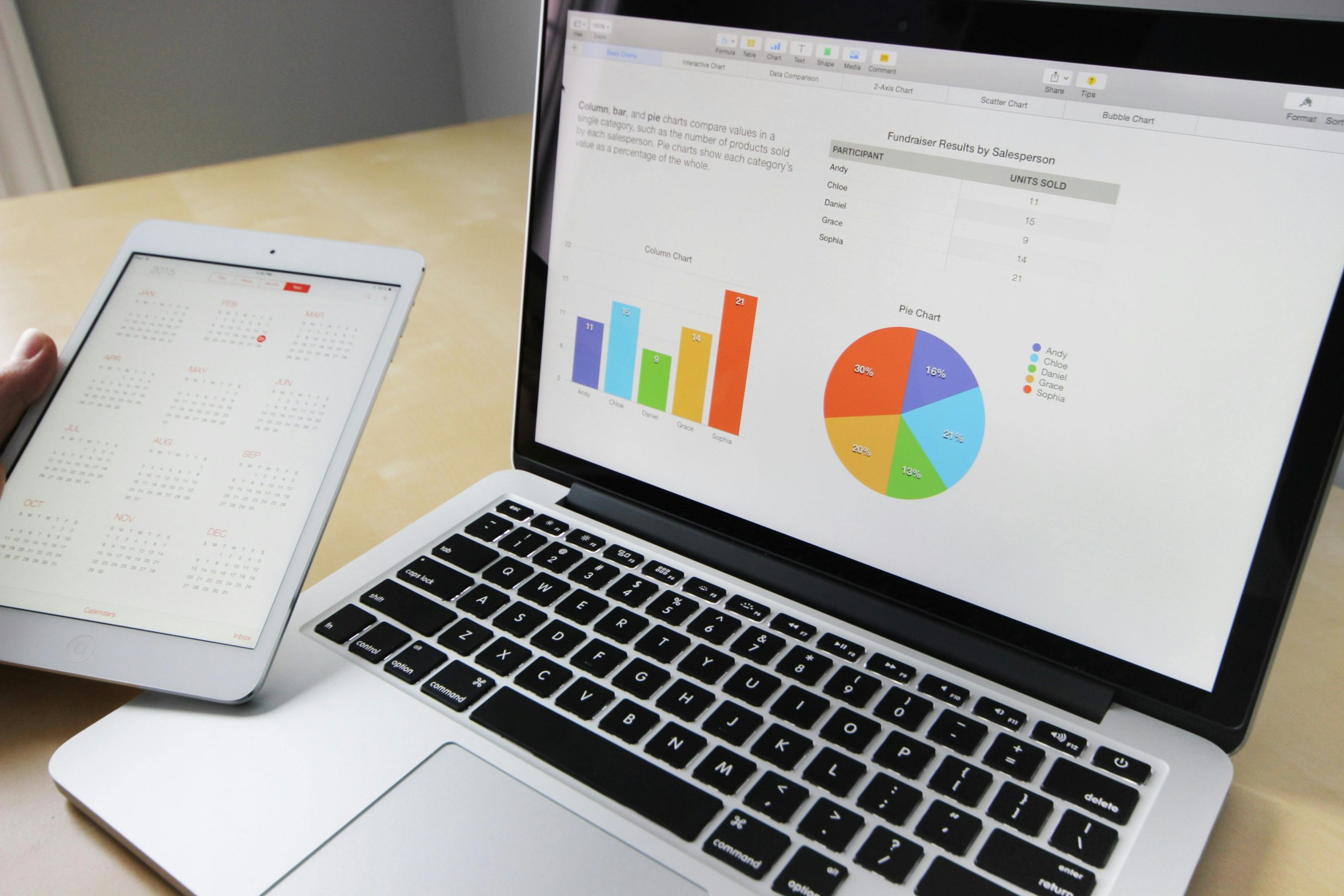How Can AI-Powered Budgeting Tools Revolutionize Personal Finance Management?

In the digital era, emerging technologies are disrupting every facet of human life, including personal finance management. Artificial intelligence (AI), in particular, is playing a vital role in reshaping how individuals manage their finances. By leveraging AI-powered budgeting tools, users can gain in-depth financial insights, make data-driven investment decisions, and receive personalized financial advice. This article will delve into how AI-powered budgeting tools are revolutionizing personal finance management.
The Power of AI in Personal Finance Management
AI has become a game-changing force in the financial sector, especially in the realm of personal finance management. It is helping users make more informed financial decisions and their management processes more efficient.
Also read : Can Smart Wristbands with UV Sensors Help Reduce Skin Cancer Risks?
Today, AI-powered budgeting tools use machine learning algorithms to analyze users’ financial data and provide real-time insights into their spending habits. These tools can predict future spending patterns based on past data, aiding users in making informed decisions about their financial future.
Moreover, AI software can provide personalized advice based on users’ financial goals and risk tolerance. This intelligence can be invaluable in helping individuals reach their financial goals faster and more efficiently. For instance, if a user is saving for a down payment on a house, the AI-powered tool will recommend the best savings strategy or investment opportunities to reach this goal.
This might interest you : What’s the Potential of AI in Customizing Treatment Plans for Chronic Conditions?
The Role of AI in Investment Decisions
When it comes to making investment decisions, AI-powered tools are proving to be invaluable assets. They can analyze vast amounts of financial data in real-time, providing users with up-to-the-minute insights into market trends and investment opportunities.
Moreover, these tools can use predictive analytics to forecast future market trends, enabling users to make proactive investment decisions. Users can also set their investment goals and risk tolerance levels, and the AI-powered tool will provide tailored advice on the best investment strategies to achieve those goals.
Additionally, these AI-powered investment tools can automate the investment process, saving users time and minimizing the potential for human error. For instance, robo-advisors, which are automated investment platforms powered by AI, can create and manage investment portfolios based on users’ preferences and goals.
Personalized Financial Advice with AI
The advanced algorithms used in AI-powered budgeting tools can analyze users’ financial data and understand their spending patterns, financial goals, and risk tolerance. This data-driven understanding enables these tools to provide personalized financial advice to users.
For instance, if the AI-powered budgeting tool detects that a user is frequently overspending on dining out, it will provide advice on how to cut back on this expense and channel the savings towards the user’s financial goals. Similarly, if the tool detects that a user has a high risk tolerance and is interested in stock market investments, it can provide advice on the best stocks to invest in.
Moreover, as these AI-powered tools continue to learn from users’ financial data, their advice will become increasingly accurate and relevant, resulting in better financial outcomes for users.
AI for Budgeting and Saving
One of the primary benefits of using AI-powered budgeting tools is their ability to help users create and stick to a budget. These tools can analyze users’ spending habits and provide insights into where their money is going. Users can then use these insights to create a realistic and manageable budget.
Additionally, AI-powered budgeting tools can automate the budgeting process, making it easier for users to stay on track. For instance, the AI software can automatically categorize expenses, track spending, and send alerts when users are close to exceeding their budget.
Moreover, these tools can help users save money by identifying unnecessary expenses and suggesting ways to cut back. They can also automate the saving process by automatically transferring a predetermined amount from users’ checking accounts to their savings accounts on a regular basis.
The Future of Personal Finance Management with AI
Looking ahead, AI-powered budgeting tools will continue to revolutionize personal finance management. As AI technologies continue to advance, these tools will become smarter and more efficient, providing users with more accurate and personalized financial insights and advice.
In the future, AI-powered budgeting tools may even be able to predict financial crises and provide advice on how to navigate them. They could also integrate with other AI-powered tools, such as personal assistants, to provide an even more seamless and holistic personal finance management experience.
Furthermore, as more individuals start using AI-powered budgeting tools, the collective financial data could be used to gain insights into larger economic trends, potentially influencing economic policy-making and financial market predictions.
In conclusion, the advent of AI-powered budgeting tools is revolutionizing personal finance management, providing users with unprecedented access to financial insights and advice. As these technologies continue to evolve, they promise to make personal finance management more efficient and accessible for everyone.
Advanced Financial Literacy through AI
Indeed, AI-powered budgeting tools are not just about making informed decisions and managing finances more efficiently. They also play a crucial role in enhancing financial literacy. By leveraging AI-powered tools, users can gain a deeper understanding of financial concepts, which can contribute significantly to better personal financial management.
AI can simplify complex financial concepts and present them in an easily understandable manner. For instance, certain AI-powered tools use data visualization techniques to represent financial data, making it easier for users to comprehend their financial state. Moreover, these tools can explain various financial terms and concepts, helping users understand the implications of their financial decisions.
Furthermore, these tools can offer personalized financial education based on users’ financial habits and goals. If a user frequently invests in stocks, the tool could provide informative content about stock market trends and investment strategies. This tailored financial education can equip users with the knowledge they need to manage their finances more effectively.
In addition, AI-powered tools can foster a habit of regular financial planning among users. They can send reminders to users to review their financial plans, provide updates on their progress towards their goals, and suggest modifications based on changes in their financial circumstances or market conditions. This ongoing engagement with financial planning can further enhance users’ financial literacy.
Conclusion: A New Era of Personal Finance Management
In the rapidly digitizing world, AI-powered budgeting tools are fundamentally transforming the way individuals manage their personal finances. They are providing users with real-time financial data, personalized financial advice, and advanced financial literacy, enabling them to make more informed decisions and achieve their financial goals more efficiently.
As artificial intelligence continues to evolve, so too will the capabilities of these tools. With the potential to predict financial crises and integrate with other AI-powered tools, the future of personal finance management looks promising. Not only will these technologically advanced tools make money management more accessible, but they will also offer a more personalized and interactive experience, thereby promoting greater financial responsibility.
Moreover, the collective financial data from these tools could offer profound insights into wider economic patterns, contributing to more informed economic policy-making and financial market predictions.
As we continue to embrace AI in our daily lives, it becomes increasingly clear that the future of personal finance management lies in these AI-powered tools. Their unparalleled capacity to provide comprehensive financial services, from budgeting and saving to investing and financial planning, is indeed revolutionizing the world of personal finances. As we move forward, it is crucial for individuals to leverage these tools to their advantage and take charge of their financial future.
